Author's Note
If you are someone who has never heard the word "tropes" it probably means you have not had the opportunity to witness fandom culture. I am not sure if I should feel sorry that you have missed out on the unique experience of being part of a group that is as infatuated with a specific TV show, book, or movie as you are, or to feel envious that you have managed to keep a healthy distance between reality and the media you consume. Coming back to what this note is for; it is a brief explanation of what fandom culture is and why tropes are popular. Therefore, the common folk outside said culture can read this enquiry with the proper knowledge required to understand it.
A fandom is a group of individuals who discuss the content and even create content surrounding their shared interest in a particular media. Some examples of such fandoms include Supernatural, Twilight, Star Wars, Percy Jackson, and the list goes on. The fans dedicate hours into attending conventions, creating fanart, fanfiction, merchandise, and sharing their creations with other like-minded fans. Examples of these can be seen in figures I and II below.
 Figure I: London Comic Con (Christou, 2017)
Figure I: London Comic Con (Christou, 2017)
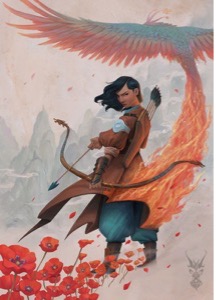 Figure II: The Poppy War (Lojaya D.A, 2017)
Figure II: The Poppy War (Lojaya D.A, 2017)
Having a slight obsession with the content is essential to be a part of a fandom, and shipping the characters you would like to end up as a couple is one of the most discussed topics within it. Tropes are common situations or plot lines in a story such as a hero's journey or friend's to lovers. These "tropes are being used time and time again because they talk to us profoundly and relate to our thoughts, feelings, fears and dreams. Tropes also help create the conventions and style of the genres and stories we love." (Lincoln, 2019). It can be concluded that tropes do play a part in bringing people together in a fandom as those who prefer specific tropes share creative ideas with each other. Certain trope narratives are used constantlywithin fanfiction and they are immensely popular because they give readers exactly what they signed up for, and more often than not, they are used to further a plot between characters they ship together. Tropes are an important tool of storytelling within fiction writing, and some are more beloved than others. "They can help facilitate engaging stories that challenge norms, ask tough questions, examine interesting ideas, or speculate possible futures" (Anderson, 2020). They can be a useful device to help a story progress along but a good writer knows how to use it without falling into the trap of "clichés". The credit for the insurgence of tropes surfacing into mainstream popularity goes to BookTok and its impacts on the industry will be further discussed in this enquiry.
I hope this summary will help put some perspective into the topic of this enquiry and if it does not, at least you now have a little conversation starter about fandom cultures.
Happy reading! Narmeen Wasim
Prologue
BookTok is a fandom of users on TikTok whose content focuses on books and literature. One might even say it is "a sanctuary for literature lovers of all kinds" (Lansom, 2022). With an extensive audience that hits almost 13 billion views per day, it is futile to deny its popularity. Content creators on BookTok have found their niche in producing short videos about the novels they adore or have recently read, giving their audience a peek into the stories that have captured their attention. It would be wrong to imply that BookTok is one of a kind and the only social media platform to have gained a sub-community of readers when Youtube (BookTube) and Instagram (Bookstagram) also exist. Before BookTok, readers would provide thoughts on their current reads through long-form videos on BookTube1, or captions under aesthetically photographed books on Bookstagam2. However, BookTok should receive credit where it's due – the significant impact it has had on the publishing industry as compared to its predecessors. BookTok has influenced viewers who either read as children and want to rekindle their love for reading, or those who have not read much for leisure and are not sure where to begin. This new mainstream passion for reading has noticeably caused a rise in book sales3 where "four out of the top five young adult bestsellers in 2021 had been driven by the BookTok trend." (BBC, 2022)
BookTok rebels against the notion of reading being solely for academics or pretentious literary enthusiasts and promotes the mindset of just reading what gives you joy. If picking a book with a cartoon cover like The Spanish Love Deception by Elena Armas is what gets you out of a reading slump, then that is as valid as someone who enjoys reading a classic like Jane Eyre by Charlotte Bronte. At this stage, it would be time to ask what makes BookTok different from BookTube? They are both video-based media platforms with an overlapping audience, but it is the content of these videos that make the creator's engagement with its audience so different. While BookTube gives its creators the time to go into deep discussions of a novel, BookTok's limited time frame forces creators to carefully pick what to share in order to pique their viewer's interest with guaranteed success. A comparison could be made between the blurb at the back of a book and BookTok's recommendations. The way a blurb gives readers a sneak peek into what a book is about, like how BookTok videos do. This has caused most BookTok creators4 to use the well-loved tropes5 present in their favourite reads as a strategy to produce viral-worthy videos. Like any other marketing tool, it is not exempt from having an influence on its audience. Therefore, it begs the question, how has it impacted the reading community and the authors of their beloved books?
Volume 1
Chapter 1: How Does Trope Marketing Impact A Reader?
BookTok and its use of trope marketing has significantly altered the way books are discussed. Before TikTok, books were recommended through word-of-mouth, BookTube, or Bookstagram. Though these are three distinctive methods of communication, they have one thing in common – they are all long-form devices where a person takes their time or is given the space to go in-depth into the storyline of a book. Unlike BookTok, these methods provide a platform for a person or content creator to bring up themes, sub-plots, or even questions they had while they were reading the book. This gives their audience the opportunity to receive well-rounded information on a book they may want to read. This is evidenced by the following quote in reference to BookTube – "As you can probably imagine, given the limitless possibilities provided by the platform, which doesn't restrict length of videos, or even the format or content (to a certain extent), you will be able to find a huge variety of types of content. From book reviews, authors reading their books on Youtube, BookTubers sharing their thoughts on certain books or recommending titles, to visually pleasing imagery that is relevant to us book lovers" (Basmo, 2022).
On the other hand, Bookstagram is the more aesthetic side of the community where picture-worthy stills of lavish bookshelves, curated flat-lays and to-be-read piles are shared across the platform. Though the imagery itself does not provide much information to the audience, they are usually accompanied by long explanations in their captions6. BookTok encompasses the common file format of BookTube, and the aesthetic nature of Bookstagram. While Bookstagram focuses on the outward appearance of a beautiful bookshelf or a pretty hardback cover, BookTok relies on the aesthetics of the internal story. It tends to romanticise books by fixating on the tropes or emotions felt while reading it rather than the plot itself. This may be in part due to TikTok's short-form style7 of sharing information with relatively little space for creators to provide their nuanced thoughts on a novel.
It should be noted that BookTok does not require careful preparation before a video is worthy of being posted online. In order to create content that will boost engagement on BookTube or Bookstagram, a creator must collect their thoughts on a book, build a narrative, film the video or take curated photographs, edit the media and then finally post them on the respective platforms. However, all one needs to make a viral-worthy TikTok is to go on pinterest, search "dark academia aesthetic", pick a couple of images that fit the vibes of a book, slap on a trendy song, and they've got a BookTok video that will most likely hit thousands of views.8
A TikTok made by '@periarrowsmith', as seen in Figure 1.1 captioned "If it's not pretentious, I don't want it" is the exact example of a TikTok made with aesthetic images that has reached 27.6k likes.
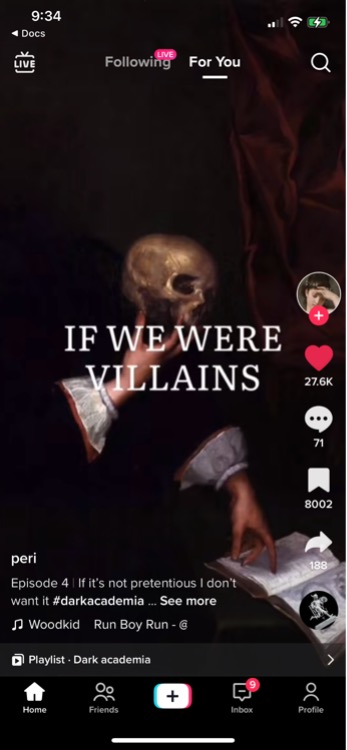 Figure 1.1: 'If it's not pretentious, I don't want it' (Peri, 2022)
Figure 1.1: 'If it's not pretentious, I don't want it' (Peri, 2022)
Watch TikTok here.
Chapter 2: A Recommendation Gone Wrong, Or Was It Just Right?
The following chapter contains references of: WAR, GENOCIDE, ELITISM, COLOURISM
The Poppy War is a science-fiction fantasy series written by award-winning author Rebecca F. Kuang. Set in Ancient China, this book uses elements inspired from history – specifically the Second-Sino Japanese war in the first book of the same title, which will be the focus of this case study. This fictional world geographically parallels reality with the Nikara Empire representing China, the Federation of Mugen representing Japan and Speer most likely a representation of Taiwan. The story also analyses the impact of West's imperialist views and colonialism with the addition of Hesparians to the plotline. With such focus on the atrocities of war and the repercussions it has on the future children of the countries,9 the question I had in mind was, 'why then has The Poppy War been marketed on BookTok as simply an academic rivals-to-lovers story?'
As someone who often found themselves on BookTok, I had come across many TikTok recommendations for The Poppy War. I dove into reading it with the impression that I was about to be taken into a cute world of Fantasy Romance. Unbeknownst to me, I was in for a shock by how wrong my perception of the book was. I soon realised that quotes and phrases I had seen on BookTok had been clearly taken out of context10 as referenced in Figure 2.1 (Bianca, 2022) and Figure 2.2 (Esme, 2022). Important themes such as genocide, elitism, and colourism were sidelined on BookTok. Were these issues not addressed because romance is perceived as more palatable for the audience? Do the BookTok creators and their audience simply not care about these issues? Rebecca F. Kuang created this beautiful trilogy with nuanced commentary on Chinese history mixed with the thrill of an epic-fantasy. Yet, the one thing that BookTok took from it was a highly hinted at trope which ultimately amounted to nothing. It became clear that BookTok's audience did indeed care about the misrepresentation of The Poppy War as the following videos in Figure 2.3 (Kenzie, 2022) and Figure 2.4 (Habiba, 2022) are only two of the many that show the backlash these creators received. Though I was pleasantly surprised by the depth of the story, if a reader just wanted a mindless fantasy romance, they would have been absolutely disappointed. From the previous examples, it is evident that BookTok's audience would like a more accurate representation of the books being recommended to them, and perhaps content creators should be more mindful of the impacts that their videos have on the perception of stories.
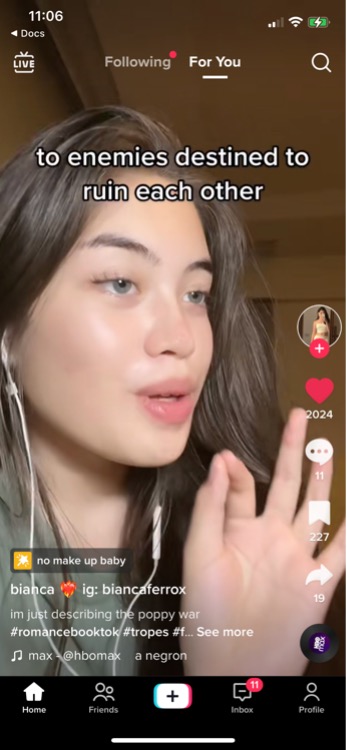 Figure 2.1: 'I'm just describing the poppy war' (Bianca, 2022)
Figure 2.1: 'I'm just describing the poppy war' (Bianca, 2022)
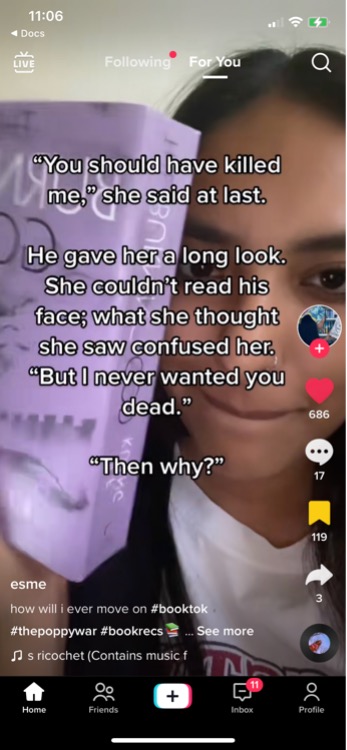 Figure 2.2: How will I ever move on (Esme, 2022)
Figure 2.2: How will I ever move on (Esme, 2022)
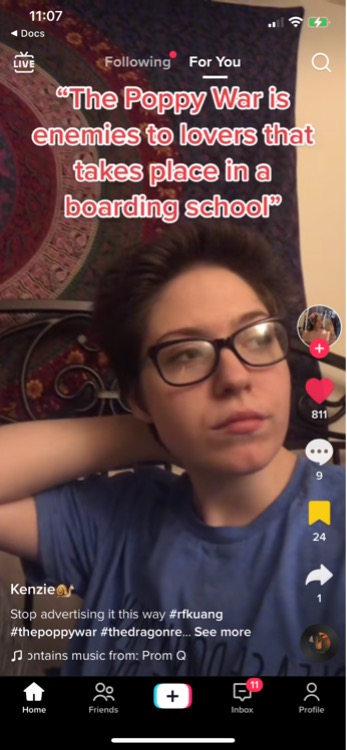 Figure 2.3: 'Stop advertising it this way' (Kenzie, 2022)
Figure 2.3: 'Stop advertising it this way' (Kenzie, 2022)
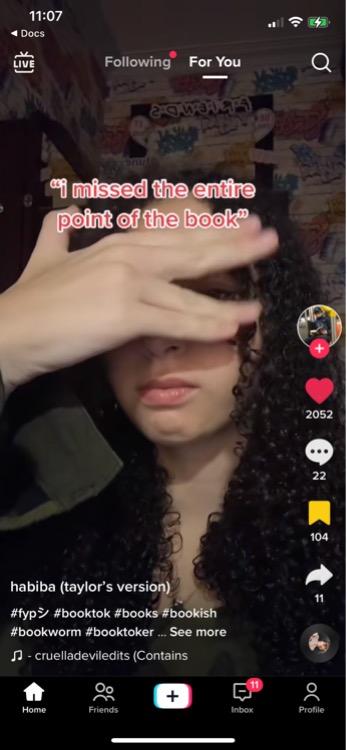 Figure 2.4: 'Uncaptioned' (Habiba, 2022)
Figure 2.4: 'Uncaptioned' (Habiba, 2022)
Chapter 3: A Book That Will Make You Cry
The following chapter contains references of: SELF HARM, SEXUAL ASSAULT, ADDICTION
A Little Life is a contemporary adult fiction novel written by an American novelist, Hanya Yanagihara. Written in the perspective of the mysterious protagonist, scarred by childhood trauma named Jude, it follows four college classmates who move to New York chasing fame and fortune. The only thread that weaves their lives together is their friendship with Jude. The novel's core theme explores the differences between the families we are born into, and the families we form ourselves.11
The story covers the decades that these men spent together and how their characters and friendships evolved during those years. It uncovers Jude's tragic past by linking it to his present. A Little Life divulges into heavy themes such as self-harm, sexual assault, and addiction. Yet it is represented as simply "a book that made me cry" on BookTok. Figures 3.1 (Mya, 2022), 3.2 (Hannah, 2021), and 3.3 (Noa, 2022) are examples of such TikToks. For a story that exploits pain and trauma, it is ironic that the audience is not given trigger and content warnings as it may have a negative impact on someone who has suffered through the incidents that are graphically detailed in this novel.
"Lately he had begun concentrating more on his upper arms (not the biceps, which were also scarred, but the triceps, which were somehow less satisfying; he liked to see the cuts as he made them without twisting his neck), but now he made long, careful cuts down his left triceps, counting the seconds it took to make each one — one, two, three — against his breaths." (Yanagihara, 2015)
By oversimplifying the tragic themes down to just how it made the creator feel, the videos do not give their audience the necessary information to make an informed decision as to whether or not to read the book. "Some reviews claim the book to be 'the great gay novel'. Some claim it to be an 'epic tale of friendship'. A few have said it is 'tortured porn'. It is none of these. It is the story of one person, Jude St. Francis." (Shenolikar, 2021)
The novel is indeed about the protagonist and his journey through his trauma. In Figure 3.4 (Sivan, 2022), the creator addresses the problem of reducing a book with heady themes to "one that made me cry" and why recommending A Little Life as a simple sad book is not okay on an app largely used by a young audience.12
Trigger and content warnings are an important part of any media consumption. However, they are not widely used in the Publishing Industry. In an ideal world, it would be standard practice for a book to have these warnings listed on the first page13, but alas we do not live in a utopia. Allowing readers to make an educated decision on the books they decide to interact with not only protects them from themes that may be harmful to themselves, but also signals readers who would like to read such themes that the book may be of interest. (Bauman, 2022)
Though Bauman raises a good point, the reason why content warnings may not be as common in this industry may be due to the fact that what one reader may consider triggering, may not be the case for another. Where would publishers draw the line? How specific should the triggers be in order for a publishing house to protect itself from litigation against it for incorporating what a reader thought would have been a better warning? The subjective nature of trigger warnings may prevent the Publishing Industry from ever taking the step towards normalising their importance within the description of novels.
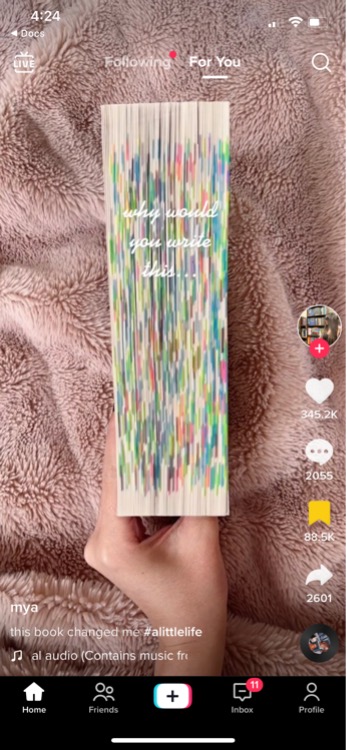 Figure 3.1: 'This book changed me' (Mya, 2022)
Figure 3.1: 'This book changed me' (Mya, 2022)
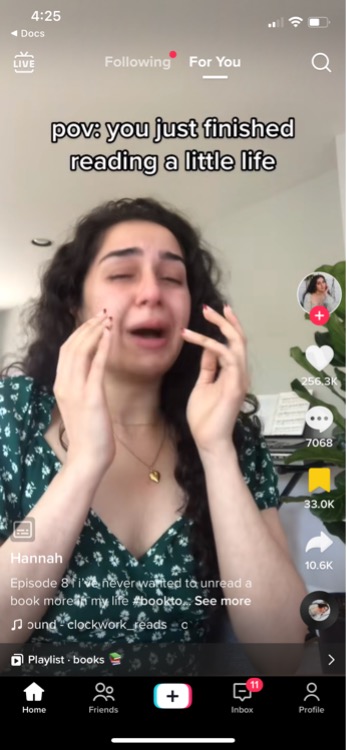 Figure 3.2: 'Episode 8' (Bianca, 2022)
Figure 3.2: 'Episode 8' (Bianca, 2022)
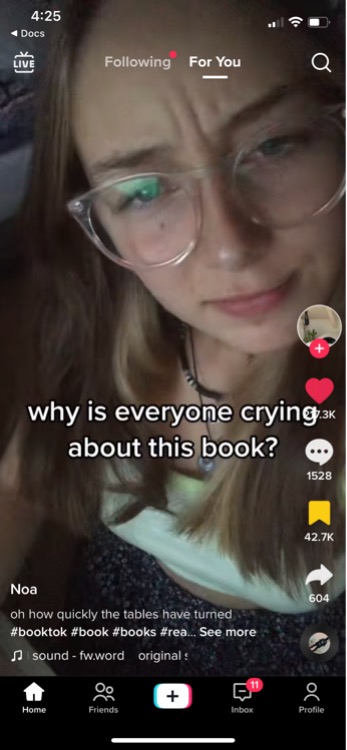 Figure 3.3: 'Oh how quickly the tables have turned' (Noa, 2022)
Figure 3.3: 'Oh how quickly the tables have turned' (Noa, 2022)
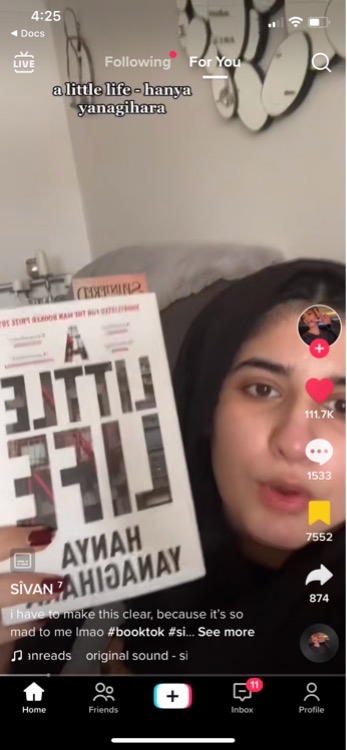 Figure 3.4: 'I have to make this clear, because it's so mad to me lmao' (Sivan, 2022)
Figure 3.4: 'I have to make this clear, because it's so mad to me lmao' (Sivan, 2022)
Chapter 4: Have You Been Conned by False Advertising?
The misleading form of reviews made by BookTok in the two case studies can be categorised as false advertising. In both instances, the audience was not only given minimal information, but without the right contexts. In the case of The Poppy War, the audience was told it is a romantic academic rivals-to-lovers which turned out to be entirely false, and for A Little Life, the spotlight shone exclusively on the emotions felt while reading the book while the reasons for it were side-lined. Not to say that these methods of recommendation do not work, they can work, if done well. A review based on emotions and tropes can be useful for those looking to read a book with those specific tropes present. However, they should not overpower the true essence of the books. Research and clear understanding of the novels should be made before a BookTok content creator makes the decision to recommend a book based on these simplistic ideals.
Advertising through social media is not an uncommon marketing tool amongst various industries, and it is true that BookTok is an effective one for the Publishing Industry. Nonetheless, it is important to note how the use of trope marketing on BookTok impacts the wider audience. In a world driven by capitalism, it is easy to think of this method of marketing as a useful tactic to gain audience traction and get readers to purchase books that have gone viral. On the other hand, is it worth misleading your audience, whether intentional or not, just for the views?
Volume 2
Chapter 5: How Does Trope Marketing Impact Authorship?
BookTok's focus on tropes present in stories has turned books into a checklist for such tropes. Content creators post videos listing books that have a specific trope or list tropes that are written in a single book. Some of these commonly represented or praised tropes include – enemies to lovers, fake dating, or even morally grey villains. This infatuation with tropes poses the question, does BookTok think that a book is superior if it has more tropes, or does the use of a specific trope make it a better reading experience? There is no doubt that tropes are an important part of storytelling. However, using tropes without any form of critical and creative thinking can lead to unoriginal, formulaic stories that disappoint readers.14
Tropes can work against a plot when authors rely on them to carry the weight of a story. A reader may most likely know that a fake-dating romance would conclude with a happy ending where the characters begin a true relationship, but the author's role is to create an engaging script to bring the reader on a journey of growth with these characters. They need to make their readers feel as the characters feel, and build a connection with them as they read on.
BookTok has certainly made it clear that tropes are more often the reason why readers love a story, but there should be a balance between the predictability of tropes, and the originality of a storyline. Would the growing emphasis on tropes essentially affect the quality of writing present in the industry? What happens when tropes become the core of a story rather than a tool to help it progress?15
What happens when an author refuses to play into this tactic and does not get the popularity they deserve for a well-written book? Lightlark by Alex Aster, Ninth House by Leigh Bardugo, and Ali Hazelwood's writing process have been chosen as case studies to evidence how trope marketing has impacted authors.
Chapter 6: Was It Really A 5-Star Read?
Lightlark is a young adult fantasy novel written by Alex Aster. It follows Isla, one of the six rulers who come to an island that appears once every hundred years to take part in the Centennial Games in order to rid their realms of curses. To say this book brought about much controversy on BookTok would be an understatement. Before this book became a BookTok sensation, its turnaround was not favourable and Alex Aster was soon dropped by her literary agent during the pandemic. Convinced that her story was worthy of being a bestseller – contrary to the belief of the numerous publishers who rejected her, Aster decided to take her idea to her audience on TikTok. She had a following on TikTok from a song she had written and claims she did not know about BookTok's existence until her video describing her book went viral overnight,16 as seen in Figure 6.1 (Aster, 2021). She learned firsthand that BookTok was a marketing tool that has a great impact on an author's ability to sell a story. A mere 7 days after her viral TikTok, she received a 6-figure deal with Amulet Books. Soon after, the film rights to her story were pre-emptively purchased by Universal.
The immense hype made it impossible for a BookTok creator not to put their 2 cents into the discussion. The book was given 5 stars before it was even released, and the credit goes to Alex Aster's curated TikTok videos with snippets of what her audience should expect from her book, also known as trope marketing. This is evidenced in Figures 6.1 (Aster, 2021) and 6.2 (Aster, 2022) Taking in the highs of popularity, she most likely did not envision it would crumble as the advance reader copies of Lightlark were released. Due to over hyped expectations, readers were disappointed by the story and the reviews dropped instantly from 5 stars down to 3.5. "She hyped up a lot of spicy content and specific scenes, and readers found the actual book lacking. She sold it on tropes that don't really apply." (Blaushild, 2022)
The quotes that enticed her audience and the plot lines she promised her viewers were said to be absent from the novel. She teased a popular enemies-to-lovers trope scene where Isla regains consciousness during a battle while the villain attacks those who harmed her, but it was nowhere to be found within the story. By using trope marketing, she misrepresented the core material of her story which led to much disappointment amongst her readers. Due to this false advertising, her followers began to view her actions with a more critical lens.17
Alex Aster's experience is one that authors should take note of. It revealed the power that we all know social media has on audience opinions and how influential these reviews can be in the Publishing Industry. Her success in promoting her novel is a clear indication that trope marketing is a useful device that works well but it needs to be done with caution.
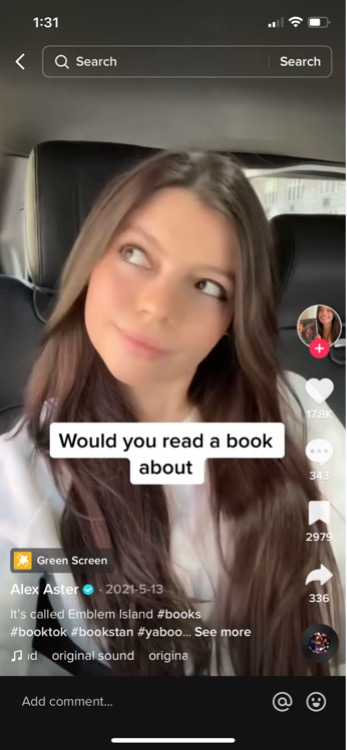 Figure 6.1: 'It's called Emblem Island' (Aster, 2021)
Figure 6.1: 'It's called Emblem Island' (Aster, 2021)
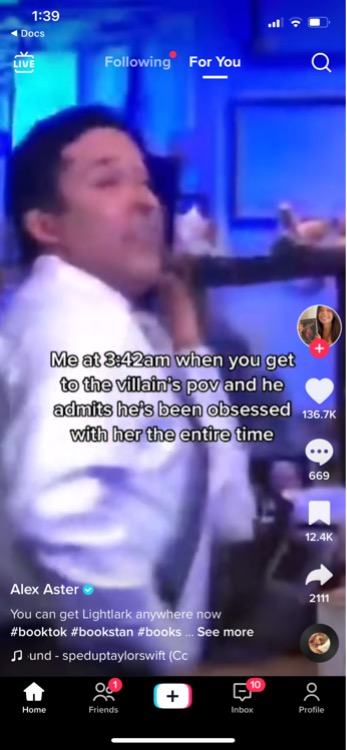 Figure 6.2: 'You can get Lightlark anywhere now' (Aster, 2022)
Figure 6.2: 'You can get Lightlark anywhere now' (Aster, 2022)
Chapter 7: Testing the Waters Of a Popular Genre
The following chapter contains references of: SEXUAL ASSAULT
Ninth House is a paranormal fantasy novel written by Leigh Bardugo, a well-known author of the Grishaverse series. While her previous books fall into the young adult fantasy category, Ninth House is her first adult fiction novel. A high school dropout named Galaxy 'Alex' Stern, is given a full ride scholarship for Yale University after surviving a horrific and unsolved crime. Due to her ability to see 'ghosts', the catch for her scholarship is her induction into Lethe — the ninth house that monitors the eight "Houses of the Veil" which are secret societies within Yale that harbour dark occult magic and power. With the increasing popularity of Dark Academia, it was unsurprising that Leigh Bardugo would decide to give the genre a try. Being a fan of her Grishaverse books I was excited, to say the least, when Ninth House was chosen as Book Club's November read. Unlike The Poppy War where I was pleasantly surprised by its beautiful storytelling, I was quite disappointed by Ninth House and soon figured that I was not the only one who felt their faith in Bardugo's writing dwindle as they read on. It was clear during the Book Club meetings that this novel did not deliver in terms of the expectations we held for Bardugo's writing, and though she has done excellent within the YA genre, 18 it was clear that this was not her forte. I made the decision to send out a survey to have some recorded data19 on the views Book Club members' had on Ninth House.
What did you enjoy about the story?
The link between the lore and real life societies was a common thread that Book Club enjoyed about the book. They felt it was a good addition to the back story and gave a sense of realism to a fantasy story. Some enjoyed the contrast between Alex and the world she was trying to navigate. Being a character who does not come from privilege that is associated with academia, and is then thrust into it unintentionally was an interesting set up. The integration of the ghosts was well-written and it was unanimously agreed that it was done well in this book.
What did you dislike about the story?
The plot structure of a story is one of the most important parts that can make or break a novel. Unfortunately for Ninth House, that was the one thing that Book Club disliked about the story. They felt the continuous plot twists did not feel conclusive and like they were simply there for shock value while undercutting any reaction a reader could have had. The pacing was not ideal, and the world build was inconsistent as well as confusing. The novel had no real connection to the setting it was placed in as most events occurred outside of Yale, despite being a major appeal in all the marketing materials (Caicoya, 2021). It was also noted that there were no actual consequences for any events that transpired because they were wiped as soon as the reader turned the page. Serious and dangerous moments were undercut by magic fixes which gave no way for a character to grow through the story. Graphic and traumatic scenes such as childhood sexual assault were brought up on more than one occasion with no warning or necessity as they were never given the adequate response or weight that they would in real life.
While reading through the survey, it occurred to me that this novel may have received a much better review if it were written as a Young Adult Fiction (YA Fiction). There are several things that differentiate a YA Fiction from an Adult Fiction, but for this case study, the themes of the story and how they are explored play a key role in Book Club's review of Ninth House. In specifics, the sexual and violent content that is portrayed in graphic detail is what made Ninth House an Adult Fiction. These details were added to the story for shock without any deeper analysis into the consequences of such trauma. Removing these scenes to turn this book into a YA fiction may have allowed room to explore more character growth.
An author has every right to try and expand their readership by branching into a new genre, but it must be done with proper building blocks of story writing. Leigh Bardugo is a great writer which is apparent from the popularity of her novels. However, the trauma dumping in Ninth House is a prime example of how using tropes as the foundation of plot structure does not equate to good storytelling. It included many of the darker tropes beloved by BookTok such as enemies-to-lovers, dark academia, traumatic childhood, and unlikely hero. However, these tropes were constantly added in without further exploration on the repercussions of these events.20
Chapter 8: Is That an Author or an AI?
Ali Hazelwood is a neuroscientist and romance novelist. As a woman in STEM, the main characters in her books reflect herself within academia. Her debut novel, The Love Hypothesis, was a New York Times bestseller that began as a Kylo Ren and Rey fanfiction.2122
This was just one of the many books that Ali Hazelwood would come to write based solely from popular tropes. In an interview, she admitted that her agent guided her a lot through her creative process. She was given a list of tropes to build her story around and found it helpful due to her indecisiveness. The Love Hypothesis encompasses tropes such as fake-dating, bad boy, and the cliché gay best friend. Her second novel, Love on the Brain, also relies heavily on tropes as the structure of the story. It can be acknowledged that trope marketing on BookTok has played a big role in Ali Hazelwood's success as an author. While her books may not be the most well-written form of literature, they play into the hands of beloved tropes that entice the audience into reading her books. This is evidenced in Figures 8.1 (Liz, 2022). Her books have come under scrutiny for following the pattern of tropes rather than the plot, as shown in Figure 8.2 (Zoe, 2022), but they are still enjoyed by romance enthusiasts.
At this point I would like to pose a question: at which point of the story writing process should it solely come from the author's imagination that it can be considered truly their work? It is not uncommon for an author to experience writer's block occasionally, but does that mean they can just use a formulaic list of tropes to publish a story? It is hard not to wonder would under-represented authors – BIPOC, LGBTQ+, and disabled, be given the help that Ali Hazelwood, a white author, received from her agent? (Bialasik, 2022). I could not help but make a parallel between Hazelwood's agent feeding her tropes to use as the skeleton for her novels and a programmer feeding information to an Artificial Intelligence (AI) generator to churn out a story. In recent years, there has been much progress on computer-generated fiction where these programmes are able to "write convincing works of fiction with minimal human input" (Johnson, 2022). Would computer-generated fiction be the future of the publishing industry and make authors obsolete? Or would the role of an author evolve to include AI in their writing process? If tropes are continued to be given the same weight that they are on BookTok, the quality of writing may be affected with authors pushing out novels that simply cater towards the next viral book rather than originality.
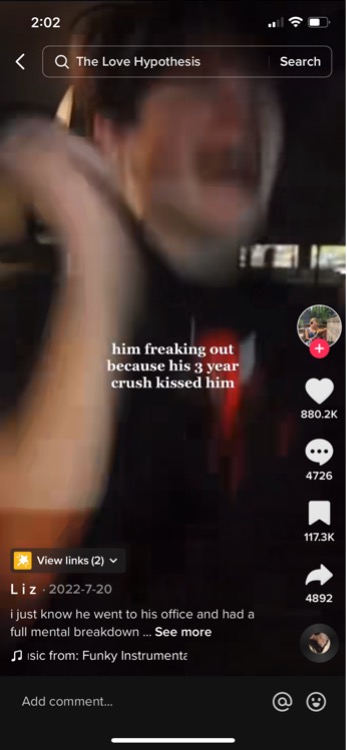 Figure 8.1: 'I just know he went to his office and had a full mental breakdown' (Liz, 2022)
Figure 8.1: 'I just know he went to his office and had a full mental breakdown' (Liz, 2022)
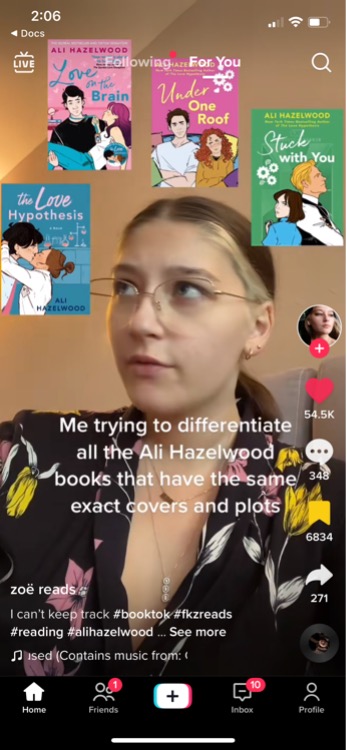 Figure 8.2: 'I can't keep track' (Zoe, 2022)
Figure 8.2: 'I can't keep track' (Zoe, 2022)
Chapter 9: Tropes Are an Unstable Foundation
Looking at these three case studies, it can be concluded that authors need to be careful when using trope marketing to ensure they are providing the right information to their readers, and that relying heavily on tropes as the structure of a plot line does not do justice to a story. In the case of Lightlark and The__Ninth House, tropes were promised and used to a large extent which took away opportunities for character growth and led to poor execution of an interesting base idea. As for Ali Hazelwood's method of authorship, her use of tropes as the base of her stories makes them seem repetitive and unoriginal. Though these books did well on BookTok by playing into trope marketing, when read with some form of criticality, it is apparent that the foundation of the story is not as stable as it seems. Using popular tropes is an easy way to ensure you have an audience that will enjoy your book and it will have much exposure on BookTok, but is it worth the expense of original creative writing? Is it worth writing a book based on the current trend rather than a book that has such a solid foundation that it can sustain through the test of time and not play into the current trend of tropes? Some of the greatest books have been written with a balance of creative thoughts and cliché tropes but it is important to note that a great author knows how to use these tropes to their advantage.
Trope marketing has certainly influenced the way books are being written to break into BookTok's audience. If a book has all the tropes commonly discussed on BookTok, it will have a higher chance of gaining recognition. However, the quality of writing still needs to be considered because in order for a book to be well-written, it needs to have a plot line that does not centre around tropes as evidenced by the case studies.
Epilogue
Trope marketing on BookTok has certainly affected the experiences of readers and the authorship process of writers. It provides minimal information presented out of context or completely false information in order to gain views on TikTok. Trope marketing, which focuses on emotions and tropes rather than the true essence of a book, can be effective in attracting an audience but is it worth misleading them for the sake of gaining views or increasing book sales? Relying heavily on tropes in a plot line to gain popularity on BookTok can also weaken a story and lead to poor execution. Authors who rely on tropes to be the main structure of their story run the risk of producing repetitive and unoriginal work. It is possible to effectively use tropes in a story without sacrificing originality, but it must be done with careful thought and considerations.
Acknowledgements
Anderson, B. (2020) Why tropes can be good, actually. Available at: https://medium.com/blankpage/why-tropes-can-be-good-actually-c2cbfea77ff3 (Accessed: 29 December 2022).
Aster. (2021) 'It's called Emblem Island' [TikTok] 13 May. Available at: https://vt.tiktok.com/ZS8rWvxyx/ (Accessed: 2 January 2023).
Aster. (2022) 'You can get Lightlark anywhere now' [TikTok] 10 November. Available at: https://vt.tiktok.com/ZS8rWtatW/ (Accessed: 2 January 2023).
Basmo. (2022) What is booktube (why should you be a part of it). Available at: https://basmo.app/what-is-booktube/ (Accessed: 6 November 2022).
Bauman, H. (2022) Should your book include a content warning? Available at: https://btleditorial.com/2022/03/17/content-warning-novels/ (Accessed: 11 November 2022).
Bialasik, O. (no date) The BookTok Effect: How social media influences book marketing. Available at: https://www.thebookshelf.ltd/the-booktok-effect-how-social-media-influences-book-marketing/ (Accessed: 28 December 2022).
Bianca. (2022) 'I'm just describing the poppy war' [TikTok] 7 October. Available at: https://vt.tiktok.com/ZS8rWxmTt/ (Accessed: 10 November 2022).
Caicoya, B. (2021) Why Leigh Bardugo's Ninth House is perfect for dark academia. Available at: https://www.cbr.com/leigh-bardugos-ninth-house-perfect-for-dark-academia-fans/ (Accessed: 28 December 2022).
Christou, L. (2017) London Comic Con 2017 Available at: https://www.verdict.co.uk/mcm-london-comic-con-2017/ (Accessed: 10 January 2023).
Doggett, J.A. (2019) What is BookTube and why should you be watching (and reading)? Available at: https://www.huffingtonpost.co.uk/entry/what-is-booktube\_l\_5cc06c21e4b01b6b3efb45ec (Accessed: 10 November 2022).
Doherty, B. (2022) Lightlark by Alex Aster - a BookTok sensation! Available at: https://berliedoherty.com/lightlark-alex-aster/ (Accessed: 29 December 2022) .
Esme. (2022) 'How will I ever move on' [TikTok] 19 June. Available at: https://vt.tiktok.com/ZS8rW9RjS/ (Accessed: 10 November 2022).
Flood, A. (2021) The rise of BookTok: Meet the teen influencers pushing books up the charts, The Guardian. Available at: https://www.theguardian.com/books/2021/jun/25/the-rise-of-booktok-meet-the-teen-influencers-pushing-books-up-the-charts (Accessed: 10 November 2022).
Habiba. (2022) 'Uncaptioned' [TikTok] 24 September. Available at: https://vt.tiktok.com/ZS8rWbUcb/ (Accessed: 10 November 2022).
Hannah. (2021) 'Episode 8' [TikTok] 28 August. Available at: https://vt.tiktok.com/ZS8rW7GTj/ (Accessed: 20 December 2022).
Johnson, M.J. (2022) Books and social media: How the digital age is shaping the printed word. Milton Park, Abington, Oxon, -: Routledge.
Kenzie. (2022) 'Stop advertising it this way' [TikTok] 29 August. Available at: https://vt.tiktok.com/ZS8rWmFr9/ (Accessed: 10 November 2022).
LadyAcademia. (2022) Booktok influencers and their impact on the publishing industry. Available at: https://the-artifice.com/booktok-influencers/ (Accessed: 10 November 2022).
Lansom, A. (2022) Booktok is the last wholesome place on the internet. Available at: https://www.refinery29.com/en-gb/book-reading-recommendations-tiktok (Accessed: 5 October 2022).
Lincoln, S. (2019) 5 important reasons your writing needs tropes. Available at: https://bang2write.com/2019/11/5-important-reasons-your-writing-needs-tropes.html (Accessed: 28 December 2022)
Liz. (2022) 'I just know he went to his office and had a full mental breakdown' [TikTok] 20 July. Available at: https://vt.tiktok.com/ZS8rWHqBG/ (Accessed: 2 January 2023).
Lojaya, D.A. (2017) The Poppy War [Digital Art]. Available at: https://www.reddit.com/r/ReasonableFantasy/comments/kn3ult/the\_poppy\_war\_by\_david\_ardinaryas\_lojaya/ (Accessed: 10 January 2023).
Milas, L.B. (2022) Lightlark proves that popular formulas work for a reason. Available at: https://www.pastemagazine.com/books/alex-aster/lightlark-review-alex-aster/ (Accessed: 29 December 2022).
Mya. (2022) 'This book changed me' [TikTok] 1 October. Available at: https://vt.tiktok.com/ZS8rWm8Ft/ (Accessed: 20 October 2022)
Noa (2022) 'Oh how quickly the tables have turned' [TikTok] 7 August. Available at: https://vt.tiktok.com/ZS8rWQ3E3/ (Accessed: 20 December 2022).
Peri. (2022) 'If it's pretentious I don't want it' [TikTok] 17 October. Available at: https://vt.tiktok.com/ZS8RU5fMm/ (Accessed: 12 December 2022).
Reddan, B. (2022) Social reading cultures on BookTube, Bookstagram, and BookTok. ARC Linkage Project. Deakin University. Available at: https://slav.vic.edu.au/index.php/Synergy/article/download/597/592/1067 (Accessed: 12 October 2022).
Shenolikar, A. (2021) A little life: To read or not to read? (mindscape reviews). Available at: https://mindscapeinwords.com/2020/04/a-little-life-to-read-or-not-to-read-mindscape-reviews.html#:~:text=Anyone%20who%20wishes%20to%20read,rape%2C%20drug%20addiction%20%26%20violence (Accessed: 11 November 2022).
Sivan. (2022) 'I have to make this clear, because it's so mad to me lmao' [TikTok] 9 February. Available at: https://vt.tiktok.com/ZSRTwoWrh/ (Accessed: 2 January 2023).
Stokel-Walker, C. (2021) The real data behind BookTok, The Bookseller. Available at: https://www.thebookseller.com/comment/real-data-behind-booktok-1267517 (Accessed: 5 October 2022).
Tiffany, T. (2021) Everything you need to know before you read the Poppy War by R.F. Kuang. Available at: https://readbytiffany.com/2020/11/15/everything-you-need-to-know-before-you-read-the-poppy-war-by-r-f-kuang/ (Accessed: 11 November 2022).
TikTok helps UK book sales hit record levels, Publishers Association says (2022) Available at: https://www.bbc.co.uk/news/entertainment-arts-61173810 (Accessed: 10 November 2022).
Zoe. (2022) 'I can't keep track' [TikTok] 19 August. Available at: https://vt.tiktok.com/ZS8rWHwct/ (Accessed: 2 January 2023).
- BookTubers use several strategies of self-presentation to develop their personal brand as 'authentic, relatable book lovers'. They use various styles such as confessional or diary-entry aesthetic to capture their audience's attention.↩
- "Bookstagram is known for its luxurious aesthetic, celebrating the materiality of books." (Rodger, 2019)↩
- Total book sales rose 5% to 6.7 billion pounds (BBC, 2022)↩
- "While this may sound like a reductive way to talk about books, the sisters (Mirellie and Elodie) know that these memes are an effective ruse to entice readers" (Flood, 2021)↩
- Tropes in literature are commonly-used plot devices/character attributes such as a love triangle or found-family — a group of characters who have bonded through shared experiences and thus consider each other family.↩
- "...sparks conversation with other readers including book reviews and discussion questions."↩
- Could this be why trope marketing is so popular?↩
- BookTok creators can produce vastly more content than on any other platform.↩
- "The Poppy War trilogy is an unfiltered look at the brutality of violence, war and how its aftermath leaves a lasting effect on generations." (Tiffany, 2021)↩
- Trying to make it fit the trope of 'romance'.↩
- Found family trope.↩
- Ages under 30 = 47.4%↩
- Ace of Spades by Faridah Àbíké-Íyímídé↩
- An example of an unoriginal story could be: underdog misfits learn to work together and win a competition. But, a story that took this trope and did it well was Leigh Bardugo's Six of Crows.↩
- Using tropes as the foundation of a story could potentially lead to plot-holes and may even prevent a smooth narrative.↩
- More than 1 million views.↩
- They accuse her of scarcity marketing to make it look like it has "sold out", she advertised herself as an underdog but it was revealed that she comes from a privileged background.↩
- was nominated for 6 awards for multiple books and has won 4 in total. She is also constantly ranked within best YA books of the year.↩
- stars = 60% 2 stars = 40%↩
- "Now I am considering expanding my definition (of a 'flat' character) to include characters with complex backstories and issues, but who are never given the emotional depth beyond that to get me to fully care." (Smith, 2021)↩
- Characters from Star Wars.↩
- Fanfiction is fictional writing written by fans that is based on existing work of fiction such as TV shows, movies or books.↩